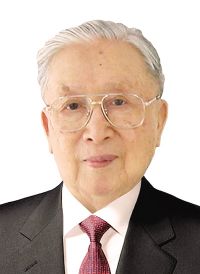Wu Jieping
Wu Jieping (Chinese: 吴阶平) was a renowned urologist, whose widely-acclaimed surgical skills cured many former leaders of Asian countries. He was also the doctor who performed the first kidney transplant in China and proposed the vasoligation for the country’s birth control policy.
Born in 1917, Changzhou, Jiangsu Province, Wu entered the prestigious Peking Union Medical College at 19. A smart student in a highly competitive college, Wu consistently gained remarkable scores in each advancing exam. After eight years of intense studies, Wu received a PHD from New York University, under which Wu’s college was registered in the United States.
Wu graduated as World War II broke out in the Pacific and Beijing had already been conquered by the Japanese, so he wasn’t able to fulfill his dream to work in the Peking Union Medical College Hospital, which was closed due to the escalated tension between Japan and the United States. Fortunately, his former professor, Xie Yuanpu, one of the early urologists in China, brought him to Zhonghe Hospital (now the People’s Hospital of Peking University).
Xie taught Wu urology and sent him to the University of Chicago in 1947 for further education. Wu’s mentor in the United States was the famous Nobel laureate Charles Huggins. Huggins was deeply impressed by Wu’s talent and tried hard to persuade him to work for him after Wu finished the two-year study program; however, Wu turned down the opportunity, despite Huggins’ promise to assign Wu a new lab room. Wu left America without any luggage and arrived home right before the founding of People’s Republic of China in 1949.
He worked for Peking University First Hospital after returning home and set up a 3-bed urology department. After years of research and clinical experience, Wu was confident in applying pioneering technologies, such as percutaneous trans-renal puncture pyelorgraphy and cecum argumentation cystoplasty.
Wu’s reputation rose significantly internationally after he successfully treated Indonesian president Sukarno’s troubled left kidney. Wu was also the trusted doctor of the late premier Zhou Enlai, who suffered from bladder cancer in his last days.
A famous doctor and professor, Wu was elected as the deputy chairman of the standing committee of the eighth and ninth National People’s Congress (NPC) and the chairman of the Central Committee of the Jiu San Society.
Wu died on March 2, 2011 at the age of 94.
